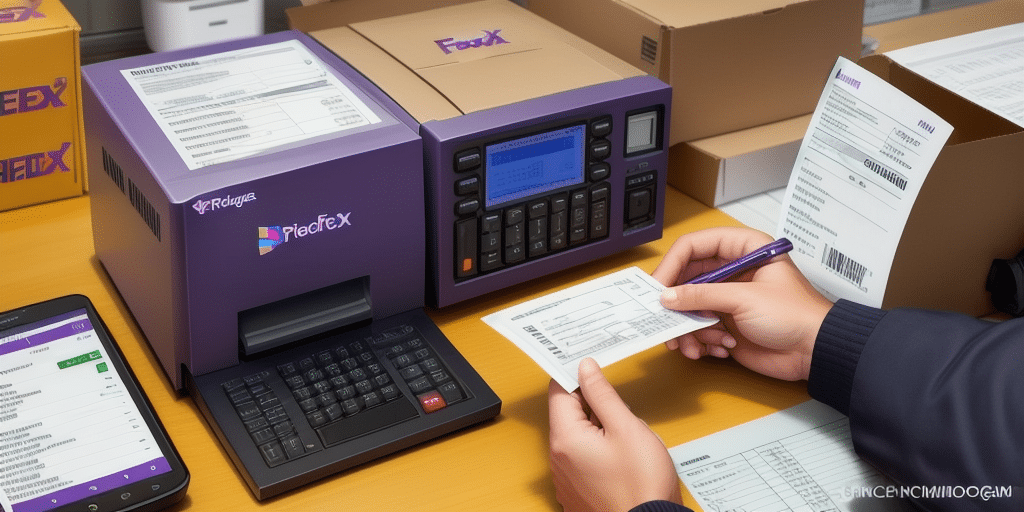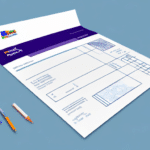Understanding Commercial Invoices in International Shipping
A commercial invoice is a critical document required for international shipping, acting as a customs declaration that provides essential information about the shipment. This document details the items being shipped, their country of origin, their value, and other relevant information, ensuring that your shipment complies with the destination country's import regulations.
Importance of Commercial Invoices for Customs Clearance
When goods cross international borders, they undergo customs clearance, a process where customs authorities assess the contents of the shipment to determine applicable taxes, duties, and fees. A commercial invoice facilitates this process by providing a clear and accurate declaration of the shipment's contents and their value. According to the World Trade Organization, accurate documentation can significantly reduce delays in customs clearance, enhancing the efficiency of international trade.
Legal Significance of Commercial Invoices
A commercial invoice not only serves as a customs document but also acts as a legal record of the transaction between the sender and the recipient. In cases of disputes or discrepancies, the commercial invoice can be used as evidence to resolve issues related to the shipment's contents, value, and terms of sale.
Overview of the FedEx Ship Manager System
The FedEx Ship Manager system is an online tool designed to simplify and streamline the shipping process for businesses of all sizes. It offers a range of features that allow users to create and manage shipments, print shipping labels, and generate necessary documentation, including commercial invoices.
Key Features of FedEx Ship Manager
- Shipment Tracking: Real-time tracking information ensures you always know the status and location of your shipments.
- Label Printing: Easily create and print shipping labels tailored to your shipment’s needs.
- Customs Documentation: Generate accurate commercial invoices to facilitate smooth customs clearance.
- Rate Calculations: Access competitive shipping rates and choose the best option for your needs.
Benefits for International Shippers
Using the FedEx Ship Manager system offers numerous advantages for businesses engaged in international trade. These include increased shipping efficiency, reduced errors in documentation, and enhanced ability to track and manage multiple shipments simultaneously. According to a Forbes article, integrating advanced shipping systems like FedEx Ship Manager can lead to significant improvements in supply chain management and overall business performance.
Setting Up Your FedEx Ship Manager Account
Before you can utilize the FedEx Ship Manager system to print commercial invoices, you need to create an account. The setup process is straightforward and can be completed in a few simple steps.
Step-by-Step Account Creation
- Visit the FedEx website and navigate to the Ship Manager section.
- Click on "Create an Account" and fill in the required personal and business information.
- Choose a secure password and complete the registration process by verifying your email address.
- Log in to your newly created account to start managing your shipments.
Once your account is set up, you can access various features such as managing recipient addresses, saving package dimensions, and selecting preferred shipping options, making the shipping process more efficient.
Creating and Printing Commercial Invoices with FedEx Ship Manager
The FedEx Ship Manager system simplifies the process of creating and printing commercial invoices, ensuring that your international shipments meet all necessary documentation requirements.
Generating the Commercial Invoice
- Log in to your FedEx Ship Manager account.
- Navigate to the "Create Shipment" section.
- Enter all required shipment details, including sender and recipient information, package dimensions, and item descriptions.
- Select the option to generate a commercial invoice within the shipment settings.
Ensuring all information is accurate is crucial to avoid delays or rejections during customs clearance.
Printing Your Commercial Invoice
- After generating the invoice, go to the "Documents" section in your account.
- Select the commercial invoice you wish to print.
- Click the "Print" button to create a hard copy.
Additionally, you can customize the invoice format by selecting specific fields and adjusting the layout to meet your needs. This flexibility ensures that the invoice aligns with both your business requirements and the destination country's regulations.
Essential Information for a Commercial Invoice
Creating an accurate and comprehensive commercial invoice is essential for smooth customs clearance. Below are the key elements that must be included in your invoice.
Required Details and Formatting
- Shipper and Recipient Information: Full names, addresses, and contact details of both the sender and the recipient.
- Item Descriptions: Detailed descriptions of each item, including quantity, unit price, and total value.
- Country of Origin and Destination: The country where the goods originated and where they are being shipped to.
- Harmonized System (HS) Codes: Internationally standardized codes used to classify traded products.
- Invoice Date and Number: The date the invoice was created and a unique invoice number for reference.
- Incoterms: Terms that define the responsibilities of buyers and sellers in the shipment process.
Country-Specific Requirements
Different countries may have unique requirements for commercial invoices. For instance, the European Union may require additional declarations for certain goods, while countries like Canada might mandate specific labeling requirements. It’s essential to consult the Canada Border Services Agency or the appropriate authority in your destination country to ensure compliance and avoid potential delays.
Best Practices and Troubleshooting for Commercial Invoices
Ensuring the accuracy and security of your commercial invoices is vital for efficient international shipping. Here are some best practices and solutions to common issues that may arise.
Ensuring Accuracy and Completeness
- Detailed Item Descriptions: Clearly describe each item, including its purpose and value.
- Consistent Information: Ensure that all details match other shipping documents like the bill of lading and packing list.
- Proper Incoterms: Use the correct Incoterms to define the responsibilities of each party accurately.
Double-checking all entered information can prevent delays and ensure that your shipment proceeds without unnecessary holdups.
Common Issues and Their Solutions
- Printer Issues: If you encounter problems with printing, ensure your printer is properly connected and has sufficient ink and paper.
- Formatting Errors: Adjust page margins or select a different paper size in your printer settings to resolve formatting issues.
- System Glitches: Clear your browser cache or try accessing the FedEx Ship Manager using a different browser. If issues persist, contact FedEx customer support for assistance.
Addressing these common issues promptly can help maintain the efficiency of your shipping operations.
Best Practices for Managing and Storing Your Commercial Invoices
- Regular Review and Updates: Periodically review your commercial invoices to ensure all information remains accurate and up-to-date.
- Secure Storage: Store invoices in a secure location to protect sensitive information from theft or cyber attacks.
- Use Encryption: Implement encryption and other security measures to safeguard your invoices, especially when storing them digitally.
Maintaining well-organized and secure records of your commercial invoices not only aids in smooth shipping operations but also ensures compliance with financial and legal regulations.
By following these guidelines and utilizing the features offered by the FedEx Ship Manager system, you can efficiently create, manage, and print commercial invoices, ensuring that your international shipments proceed smoothly and arrive at their destinations without unnecessary delays.




















